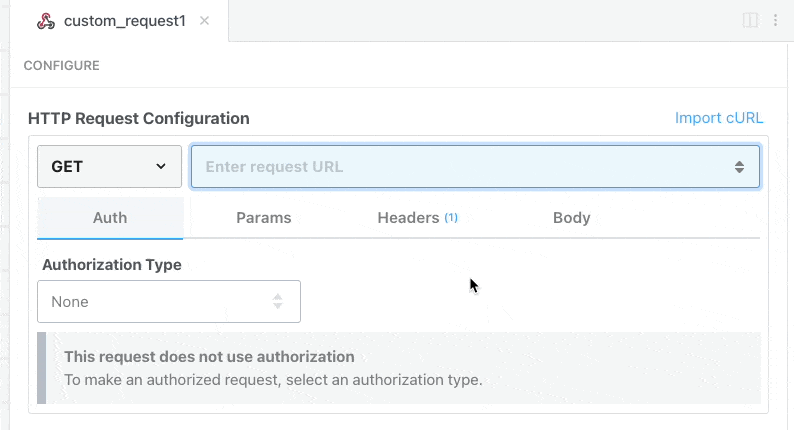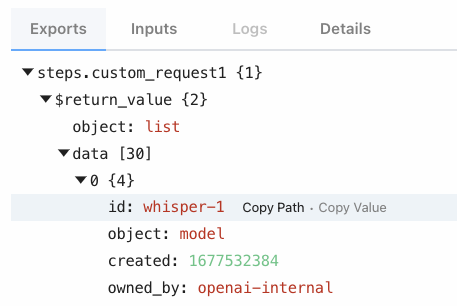What do you want to automate
with HTTP / Webhook and Twilio?
Prompt, edit and deploy AI agents that connect to HTTP / Webhook, Twilio and 3,000+ other apps in seconds.
Trusted by 1,000,000+ developers from startups to Fortune 500 companies
Popular Ways to Connect HTTP / Webhook with Twilio#
Popular HTTP / Webhook and Twilio Triggers#
Get a URL and emit the full HTTP event on every request (including headers and query parameters). You can also configure the HTTP response code, body, and more.
Get a URL and emit the HTTP body as an event on every request
Emit new event every time an SMS is sent to the phone number set. Configures a webhook in Twilio, tied to an incoming phone number.
Emit new event when the content of the URL changes.
Emit new event each time a call to the phone number is completed. Configures a webhook in Twilio, tied to a phone number.
Popular HTTP / Webhook and Twilio Actions#
Make a phone call passing text, a URL, or an application that Twilio will use to handle the call. See the documentation
Send an HTTP request using any method and URL. Optionally configure query string parameters, headers, and basic auth.
Check if user-provided token is correct. See the documentation
Send an HTTP GET request to any URL. Optionally configure query string parameters, headers and basic auth.
Create a verification service for sending SMS verifications. See the documentation
Overview of HTTP / Webhook#
Build, test, and send HTTP requests without code using your Pipedream workflows. The HTTP / Webhook action is a tool to build HTTP requests with a Postman-like graphical interface.

Point and click HTTP requests
Define the target URL, HTTP verb, headers, query parameters, and payload body without writing custom code.

Focus on integrating, not authenticating
This action can also use your connected accounts with third-party APIs. Selecting an integrated app will automatically update the request’s headers to authenticate with the app properly, and even inject your token dynamically.

Pipedream integrates with thousands of APIs, but if you can’t find a Pipedream integration simply use Environment Variables in your request headers to authenticate with.
Compatible with no code actions or Node.js and Python
The HTTP/Webhook action exports HTTP response data for use in subsequent workflow steps, enabling easy data transformation, further API calls, database storage, and more.
Response data is available for both coded (Node.js, Python) and no-code steps within your workflow.

Connect HTTP / Webhook#
// To use any npm package on Pipedream, just import it
import axios from "axios"
export default defineComponent({
async run({ steps, $ }) {
const { data } = await axios({
method: "GET",
url: "https://pokeapi.co/api/v2/pokemon/charizard",
})
return data.species
},
})
Overview of Twilio#
Twilio's API on Pipedream opens up a multitude of communication capabilities, allowing you to build robust, scalable, and automated workflows. With Twilio, you can send and receive SMS and MMS messages, make voice calls, and perform other communication functions programmatically. Leveraging Pipedream's seamless integration, you can connect these communications features with hundreds of other services to automate notifications, streamline customer interactions, and enhance operational efficiency.
Connect Twilio#
import { axios } from "@pipedream/platform"
export default defineComponent({
props: {
twilio: {
type: "app",
app: "twilio",
}
},
async run({steps, $}) {
return await axios($, {
url: `https://api.twilio.com/2010-04-01/Accounts.json`,
auth: {
username: `${this.twilio.$auth.AccountSid}`,
password: `${this.twilio.$auth.AuthToken}`,
},
})
},
})
Community Posts#


